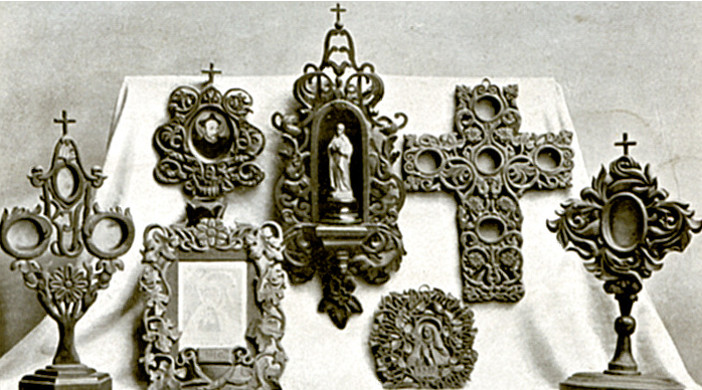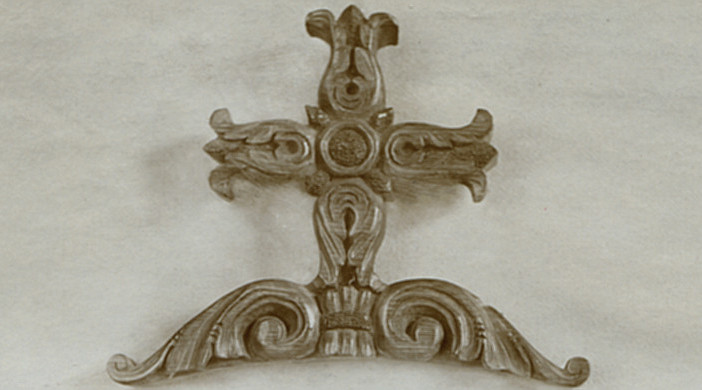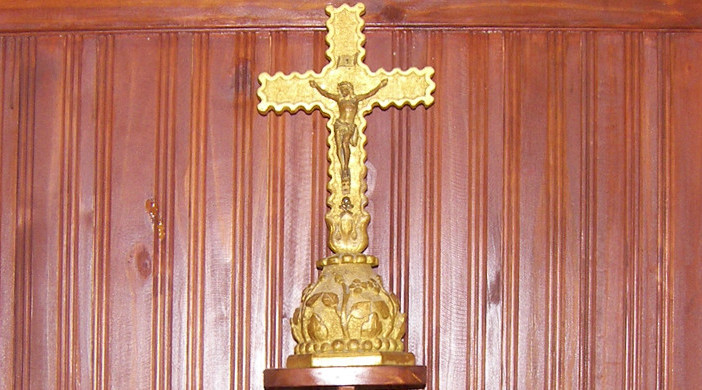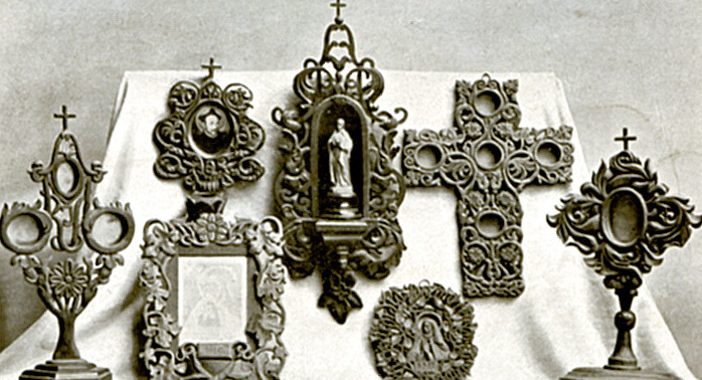
“Whoever does not take up their cross and follow me is not worthy of me” (Mt 10, 38). Father Beyzym followed Our Lord with his cross without fail. This was the cross of the daily reality. He often wrote in his letters: “There is no crown without a cross”; “There is no progress without a cross”; “Through the cross to the light”.

THE CROSS OF JESUS
His life, vocation, confreres, the lepers did not spare him resentment, troubles, disappointment. He suffered from malaria and African flees many times and everyday service for the lepers was far from pleasing. But Father Beyzym called those pains tenderly: “splints” of the Cross of Jesus.
Jesus on the Cross was the best and the most effective inducement for Father Beyzym to be faithful to his religious vocation, despite the hardships he had to overcome. Difficulties, troubles, drawbacks one should humbly take from Our Lord’s hand. They are an integral part of our vocation to follow the steps of the Crucified; they are our “crosses”. He believed that insubordination and responsibility for others was also the cross. Sometimes he was overpowered with the weariness and impatience, his troubles with the leprosarium construction were his daily bitter piece of bread. But he simply took them as the “crosses from Jesus”. He never felt the lack of those “crosses”. “You are working on it and it is not coming”, - he wrote. He was pursued and haunted by troubles all the way through the leprosarium construction and its lock-up stage. He bore everything patiently, because he believed that only through the cross one could get to the light –“per crucem ad lucem”.
Father Beyzym took his sufferings patiently and humbly, he endured them courageously and trustfully, as “Our Lord knows who and with what cross to bestow”. One should not wonder that the cross is painful. “If they did not hurt, they would not be the ones”. Praise and glory to God for them.

A SIGN OF THE DIVINE BLESSING
Educated by St. Ignatius, Father Beyzym understood that every work of God is marked by the cross. The cross is a sign of the Divine blessing that promises the good fruit for the greater glory of God. He slowly started to feel that he was ageing, growing weaker, that his hour was coming, but he was cheerful, because “illnesses and the death are a tiny Cross of Our Lord”.
In troubles and disappointments he always asked others, mainly Krakow Carmelites, to pray for him and searched the intercession of saints. He never pled exclusively for his own self, for example, to be freed from the African flees with the intercession of St. Theresa of Jesus, as “one need to suffer” and give thanks to the Lord for this cross.
He was valiantly patient during his last illness. When a complaint or a moan could escape his lips and he was asked if he anguished, he always answered: “Could it be compared to the suffering of God?”
He crossed himself as long as he could do it and would kiss his cross (it was a cross of his order). When he was not able to make the sign of the cross anymore, he used to ask Anne Marie of Visitation, who looked after him, to sprinkle him with holy water and make the sign of the cross over him.
He treated his cross with great reverence. “My cross serves me and my lepers everywhere and for everything”. He gave it to be kissed by a dying, crossed the tombs and often kissed it himself. “It is like our common property”.
He took care of the landscaping of the cemetery in Marana. He wanted to place five-meter high metal cross there to watch over the dead and to attract the attention of living, reminding them about the Crucified Jesus, our Life and Resurrection.
Father Beyzym lived, prayed, worked, suffered and died as a great follower of Jesus and His Cross. He could say just as St. Paul that he was “always carrying in the body the death of Jesus” (2 Cor 4, 10).
Fr Mieczyslaw Bednarz
